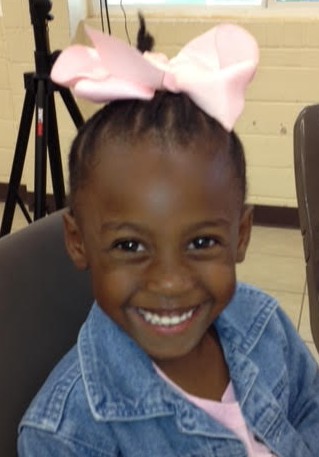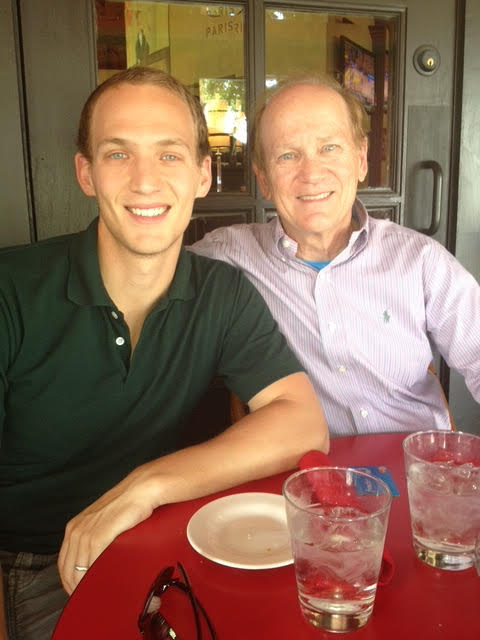Titles Have Substance When Earned
I’ve had the honor of carrying a few titles throughout my life: Founder, Chairman, Philanthropist, and easily the one I’m most proud of—Dad. On paper, the titles might look like milestones or status symbols. But to me, each one is a symbol of something deeper: sacrifice, work, and unshakable belief.
You don’t get to wear titles like that by accident. You earn them—inch by inch, year by year, often in silence, without so much as an echo of accolade. And that’s what gives them weight.
Because the truth is, the value of a title isn’t in how other people see it. It’s in how much you labored and sacrificed along the way to get there.
From Shoe Salesman to Founder
I didn’t start with much. I was raised in a working-class family, the youngest of three boys. When my father’s business collapsed, we packed our things that same afternoon, drove 400 miles, and moved in with my grandmother. Two weeks later my dad took a job overseas. I was barely fourteen and began shining shoes, cleaning crude-soaked downhole oil pumps, and selling movie tickets at night to help keep us afloat.
When I founded Piper-Morgan Associates in 1977, I didn’t have a team or a client list. Just a borrowed office, two rotary phones, a Yellow Pages, and the belief that I could create something of value. That belief came from years of working jobs where I had to earn trust one customer at a time.
So when I eventually earned the title, Founder, it wasn’t about prestige. It was about survival. I had bootstrapped my way into business ownership—and with every single placement, every deal, every new client—I felt the weight and hope of what that title meant. It meant distancing myself one step at a time away from hardship and building something meaningful from nothing. Knowledge, ability, sacrifice, and measureable accomplishments earn a title that’s deserved because it’s only then that a title has the real substance behind it that no one can take away.
The Honor of Chairman
Later in life, I had the privilege of serving as Chairman of the Board at Today’s Harbor for Children. This wasn’t a business role. It was a calling based on learned family values.
When I stepped into that role, I brought more than my name—I brought my whole heart and the financial success I had started to enjoy. I’d already funded the construction of a new cottage on the Harbor campus for little girls – children who had been abandoned or neglected, or worse. I had seen the hurt in their eyes and the hope that followed when they were given structure, safety, and love.
Being Chairman of the Board and the first President of the Harbor’s new on-campus K thru 8th grade school didn’t mean leading from a podium. It meant showing up. Asking hard questions. Making sure we never lost sight of our mission to help children become healthy, happy, and productive citizens. It meant breaking the cycle of violence many of these children had experienced.
That title reminded me daily that leadership isn’t just about vision—it’s about accountability and learning to work successfully with like-minded, supremely dedicated board members. The very ones whom I had learned so much from over the years. And when such an important mission is on the line, that title carries even more weight and responsibility.
What It Means to Be a Philanthropist
The title Philanthropist didn’t come with a certificate. It came quietly, after years of giving—not just financially, but emotionally and personally. My mother, by her own life example, wove this principle of giving back into mine and my brother’s lives from my earliest memories.
When Deborah and I created the Gladney & Deborah Darroh Scholarship Fund, we didn’t do it for recognition. We did it because we had walked the path so many of these students were walking—working jobs while going to school, wondering how to afford books, facing the fear of falling short.
Supporting these scholarship recipients is a constant reminder that philanthropy isn’t just about giving money. It’s about sending a message: We see you. We believe in you. Keep going.
Being a philanthropist also means planting seeds we may never see grow to full blossom—but trusting that they will. Believing in the mission is a strategic belief, not a tactical one.
Success: Fulfillment or False Promises
Success can bring fulfillment or bring false promises. People choose which one by the way they live their lives before and after they earn a lot of money (financial status being a popular yardstick of success).
Debbie and I believe it’s how one lives pre and post financial freedom that’s a telling measure of character and, ultimately, fulfillment and happiness. We’re extremely thankful for the financial independence we’ve achieved, separately and together. But for us, what makes success truly fulfilling is beyond the balance sheet. It’s what we’ve given back when we had so little to give, and what we’re doing now and will do. For us, success brings fulfillment because giving back brings us happiness. And we want to be as happy as we possibly can be.
For others, success brings false promises that often don’t end well. Choices that focus on displays of wealth, over indulgence, status seeking – are the kind that, if left unchecked, bring a barrenness to the soul and companions like alcoholism, drug addiction, and endless empty searches for meaning. This is not fulfillment or happiness.
“Two roads diverged in a yellow wood . . . I took the one less traveled by, And that has made all the difference,” Robert Frost famously wrote.
Which road will you choose?
Revisiting Titles
A title may open a door, but how you carry it determines what you do once you walk through. There’s a responsibility that comes with being seen as someone others look up to. You have to give more, guide more, and expect more of yourself than you did before.
I’ve learned that people don’t remember titles—they remember how you made them feel. They remember your integrity. Your consistency. Your willingness to lift others as you climb.
So I remember my titles proudly, those in the past and those I have now—but I also think upon them carefully. Not as badges of status, but as reminders: You worked hard for this. It’s okay to have a healthy pride. But I also know I am very, very lucky. That’s because I know there are lots of people who work extremely hard – many of them are much more talented and smarter than I am – but are people who simply never got the fortunate breaks in life that I did. This knowledge keeps me thankful every single day.
Titles or Substance – Which Is More Important
At this point in my life, I don’t strive for new titles. Titles are fine, of course, I’m not diminishing titles. But substance has long been more important to me than titles. People who have impressive titles but no substance – people without character, without the understanding that comes from the experience of struggle, of want, and without a heart for giving – their titles mean nothing, not really.
Character, leadership, compassion, and legacy are always rooted in personal choices. I’ve found it interesting that life defining choices – those moments that define the real you – are apt to present themselves at the most unexpected time and place. One such choice like that was presented to me some 35 years ago. The time was Thanksgiving. The place was my mother’s home.
Emily’s Prayer
It was at my mother’s home over Thanksgiving where I met a little girl of seven whose name was Emily (pseudonym). She was a resident of Today’s Harbor for Children. Emily was enjoying a Thanksgiving holiday weekend away from the Harbor with my cousin, her husband, and their three children. Her family was approved by the Harbor to sponsor a Harbor child at their home on special weekends.
I hadn’t known about The Harbor. I listened carefully as my cousin told me about its history. How The Harbor was an established children’s charity on a campus-like setting with cottages and house parents who cared for children who had been abandoned, abused, or neglected.
All the while, Emily was shyly hiding behind my cousin’s dress, occassionally peeking out at me. Then she ran off to play. That’s when my cousin told me Emily’s story. It was heartbreaking.
I asked if I might say “Hello” to this little girl, as she seemed curious about me. But I was discouraged. My cousin said given the trauma she’d suffered, Emily wasn’t trusting of strangers. She simply withdrew when approached by someone she didn’t know. In fact, she’d never seen Emily talk to anyone outside her own family – not even other children.
Soon Emily returned to her hiding place behind my cousin. She resumed her game of peeking out at me. I noticed she was lingering a bit longer each time. So despite my cousin’s advice, I decided to get down on one knee to be at eye level with her. The next time Emily looked out, I said, “Hi, my name is Gladney,” and warmly extended my hand in greeting.
To my utter surprise, Emily deftly stepped out from behind my cousin and, without a word, extended her hand in return. Our fingertips remained a few inches apart. Emily waited, seeming to study me. I was a bit taken aback by her steady gaze. My cousin watched in amazement.
It was then I realized that Emily was waiting for me to make the small effort to close the distance between our outstretched hands. Suddenly, an epiphany: I understood Emily was offering more than her hand. She was offering a prayer. A prayer for herself and for every other child like her who was needy, hurt, scared, abandoned, hungry. Hers was a prayer for help, for acknowledgement, for understanding, for love . . . and for effort.
There’s no explanation I have other than there was something about me that gave this little girl hope. She felt I was worthy. She trusted I might answer her prayer. Because children cannot help themselves, only grown-ups can.
With total clarity, I understood as I had never understood anything else before in my life, that within the wisp of space separating mine and Emily’s fingertips, within that tiny void, floated every virtue in the universe. I reached forward and gently took Emily’s little hand in mine. She allowed me to hold it. Then letting go, Emily slipped away and joined the other children.
And that has made all the difference.

